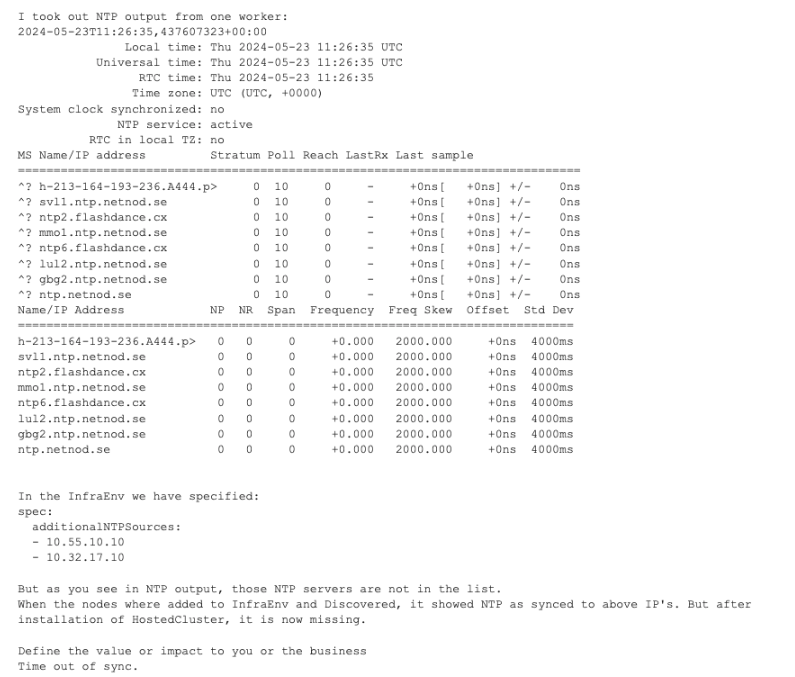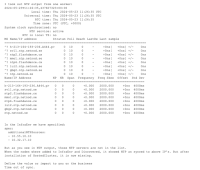-
Feature
-
Resolution: Won't Do
-
Normal
-
None
-
None
Feature Overview (aka. Goal Summary)
Enable persistent NTP configuration on worker nodes for HostedClusters in OpenShift, ensuring that additional NTP sources specified in the InfraEnv are retained after installation. This feature aims to improve time synchronization reliability across HostedCluster environments, critical for seamless application performance and cluster functionality.
Background
Currently, the InfraEnv allows specifying custom NTP sources. However, during HostedCluster setup, these configurations do not persist on the worker nodes, resulting in clock synchronization issues and potential impacts on cluster operations. Manually configuring NTP on individual nodes is a workaround but lacks scalability and efficiency for larger deployments.
Goals (aka. Expected User Outcomes)
- Users should be able to specify additional NTP sources within the InfraEnv, and have these configurations persist on worker nodes across installation and cluster updates.
- Target Persona: Cluster service consumer
Requirements (aka. Acceptance Criteria)
- Persistent NTP configurations on worker nodes for any NTP sources specified within InfraEnv, maintained through cluster lifecycle events.
Use Cases (Optional)
- Primary Success Scenario: After deploying a HostedCluster and specifying custom NTP sources, the worker nodes retain these settings, ensuring consistent time synchronization.
- Alternative Flow: If InfraEnv NTP configurations need adjustment post-installation, users can modify these settings without manual reconfiguration on individual nodes.
Out of Scope
- Non-HostedCluster installations are not affected by this configuration persistence issue.
- Custom time synchronization methods outside NTP are excluded from this feature.
Documentation Considerations
- Provide updates in HCP documentation on specifying NTP sources in InfraEnv for HostedCluster setups.
- Include troubleshooting guidelines for scenarios where NTP configurations do not persist and steps for manual intervention if required.
- depends on
-
RFE-6836 Hosted Control Planes: Improve UX for NTP configuration
-
- Backlog
-
- duplicates
-
OCPBUGS-50642 Add instructions to configure NTP servers for HCP clusters
-
- Closed
-

